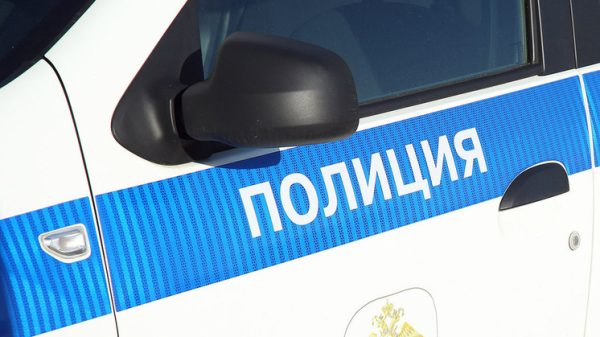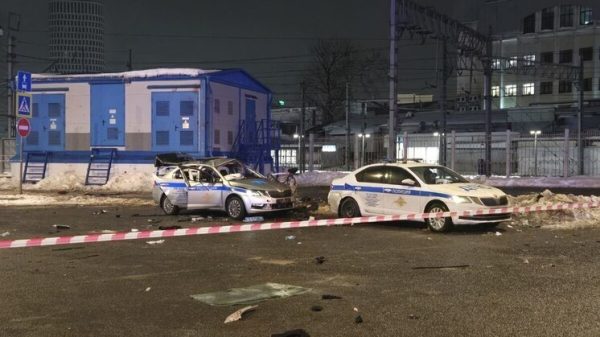At the end of November, when the hospital I was working at was becoming overwhelmed with Covid patients, I started hearing talk about people being needed to join the vaccine effort. I usually work elsewhere in the NHS, but my work had been stopped temporarily. I now work as a vaccinator in the community going to care homes and assisted-living settings, and doing home visits for older and vulnerable people.
Free provision of vaccines is preventing criminals from infiltrating rollout, say police
Read more
The training was over a month, and intense. We learned about the principles of intramuscular injections, how to screen people, confirm patient details with GPs and pharmacists, and lots of details of how the Pfizer and AstraZeneca vaccines work. Then we had three days of good practice in a mass vaccination centre hub – jab, jab, jab, jab. The vaccinators I trained with all joke that it’s sometimes like the Battle of Britain each day. We’re in the dispersal area making bad jokes, then next minute it’s: “Here’s the list, quick, scramble!”
The Pfizer vaccines are usually used in hubs, because of the low temperatures they have to be stored at. I take the AstraZeneca ones with me into the community in a temperature-controlled cool bag. It’s a bit weird knowing what you’re carrying sometimes. It’s like treasure. We’ve got volunteer drivers helping to get these vaccines around, but sometimes people drive themselves in their cars, or on bikes or scooters. We all have lateral-flow tests two or three times a week. Some care homes also demand them before we come in, wearing masks, aprons and goggles or visors.
It’s frustrating sometimes to hear the news at the end of the day that 300,000 people have been vaccinated, however brilliant that is. We’re lucky if we do 50. At the end of the day, we often spend a few hours trying to find people who will take our spares. My husband keeps asking if I’ll vaccinate him, but I won’t.
The way we work is very different to hubs. You can’t just turn up at a care home and inject everybody. This is because we’re injectors, not prescribers. Every individual has to have paperwork from a GP to be vaccinated, something called a Patient Specific Direction (PSD), which isn’t always in place. I’m often calling GPs on the day to try and get the paperwork there and then, trying to get past receptionists. Sometimes we get there, sometimes we don’t, and we need this for care-home staff, too. I had a man at one shelter who stayed late after his early morning shift to get his jab, but the GP wouldn’t cooperate in time. It’s very frustrating.
.
We also need a patient’s consent, and for some, that needs to come from someone’s lasting [personal welfare] power of attorney, which also needs sorting out. Occasionally when we turn up, the people on our list have gone out for a walk, and we don’t know where they are – we have to try and mop them up later. We’ve also had patients and even care-home workers who’ve refused the vaccine. Sometimes you get the sense that they’re waiting to see if everyone else who’s taken it grows a tail.
I’ve found out you’re very unlikely to convince an absolute refuser, but we’re very well trained in explaining how the vaccines work to people who have doubts. It’s great to be able to go round and educate people. What’s shocked me is how little some people know. I tell people: if you have the vaccine, it gives your immune system a head-start about what might be coming along, this strange alien thing. Then if you do get Covid, your immune system will know what to do.
People are so grateful to have it explained to them this way, and often very surprised. Lots of people talk about the ambiguities in the government’s messages. It makes me think about how muddled they have been, and the legacy that’s had. Each conversation I have feels like a drop in the ocean against misinformation.
It would be good to have more staff to support the vaccine effort across the board, but there’s a huge willingness to join everything up across the NHS, and make it work within the 12 weeks. There are teams within drug departments of hospitals who I don’t think have had more than two hours of sleep a night for months. They’re keeping this going. It’s not simple enough to say there aren’t enough vaccinators either: there aren’t enough staff at care homes and in the NHS to help process the PSD paperwork, and there aren’t enough staff at GPs to keep that all going. More wrap-around clinical staff to plug these gaps would take this effort to the next level. The 12-week window is looming there, but we know it is. It would be insane for us to fail.
Doing this job has been great in many ways. I’ve seen the whole of Britain in my community, from wealthy old people in posh care homes to troubled young adults with long-term conditions getting over addictions. I went to one place for vulnerable adults and there were five or six close friends in a room really excited for each other to get the vaccine, cheering each other on, then calling their relatives to report they had received it. In care homes for older people, they are often delighted to see me. They all want to talk. They haven’t seen a different face for so long. To be asked the simplest things – “What’s your name? Where are you from? How long have you been here?” – they’re so delighted.
One GP said to me the other week, it feels like we’re injecting hope on some level. It really does.






















































Свежие комментарии